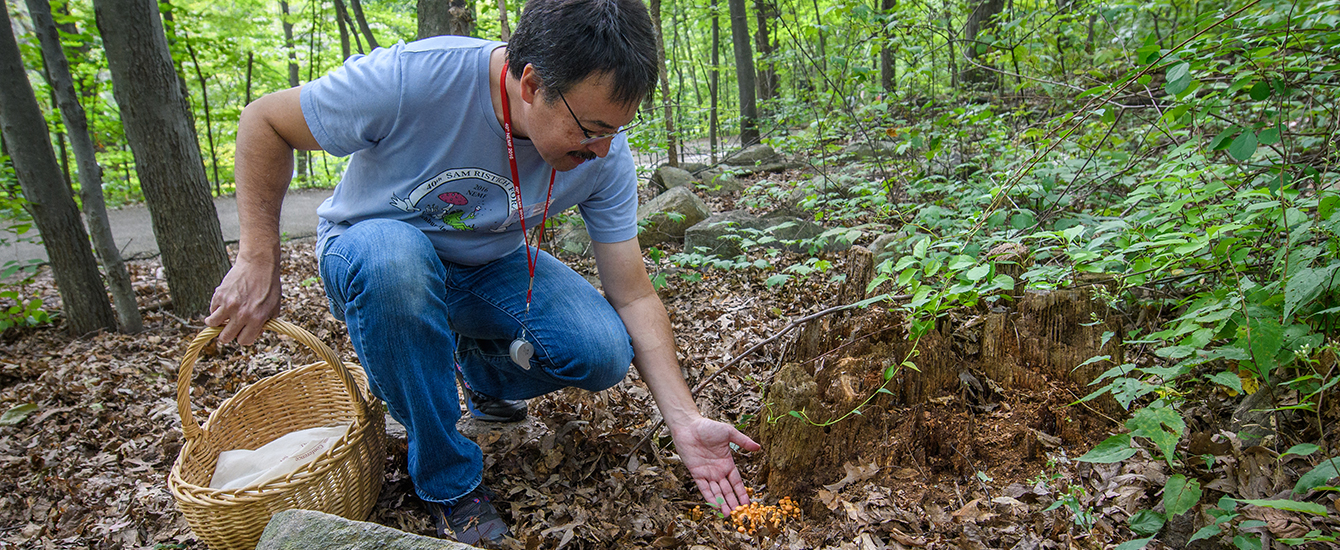Biology
Evolution of novel wood decay mechanisms in Agaricales revealed by the genome sequences of Fistulina hepatica and Cylindrobasidium torrendii
Document Type
Article
Abstract
Wood decay mechanisms in Agaricomycotina have been traditionally separated in two categories termed white and brown rot. Recently the accuracy of such a dichotomy has been questioned. Here, we present the genome sequences of the white-rot fungus Cylindrobasidium torrendii and the brown-rot fungus Fistulina hepatica both members of Agaricales, combining comparative genomics and wood decay experiments. C. torrendii is closely related to the white-rot root pathogen Armillaria mellea, while F. hepatica is related to Schizophyllum commune, which has been reported to cause white rot. Our results suggest that C. torrendii and S. commune are intermediate between white-rot and brown-rot fungi, but at the same time they show characteristics of decay that resembles soft rot. Both species cause weak wood decay and degrade all wood components but leave the middle lamella intact. Their gene content related to lignin degradation is reduced, similar to brown-rot fungi, but both have maintained a rich array of genes related to carbohydrate degradation, similar to white-rot fungi. These characteristics appear to have evolved from white-rot ancestors with stronger ligninolytic ability. F. hepatica shows characteristics of brown rot both in terms of wood decay genes found in its genome and the decay that it causes. However, genes related to cellulose degradation are still present, which is a plesiomorphic characteristic shared with its white-rot ancestors. Four wood degradation-related genes, homologs of which are frequently lost in brown-rot fungi, show signs of pseudogenization in the genome of F. hepatica. These results suggest that transition toward a brown-rot lifestyle could be an ongoing process in F. hepatica. Our results reinforce the idea that wood decay mechanisms are more diverse than initially thought and that the dichotomous separation of wood decay mechanisms in Agaricomycotina into white rot and brown rot should be revisited.
Publication Title
Fungal Genetics and Biology
Publication Date
3-2015
Volume
76
First Page
78
Last Page
92
ISSN
1087-1845
DOI
10.1016/j.fgb.2015.02.002
Keywords
brown rot, genome sequencing, Pseudogenes, reconciliation, white rot, wood decay
Repository Citation
Floudas, Dimitrios; Held, Benjamin W.; Riley, Robert; Nagy, Laszlo G.; Koehler, Gage; Ransdell, Anthony S.; Younus, Hina; Chow, Julianna; Chiniquy, Jennifer; Lipzen, Anna; Tritt, Andrew; Sun, Hui; Haridas, Sajeet; LaButti, Kurt; Ohm, Robin A.; Kües, Ursula; Blanchette, Robert A.; Grigoriev, Igor V.; Minto, Robert E.; and Hibbett, David S., "Evolution of novel wood decay mechanisms in Agaricales revealed by the genome sequences of Fistulina hepatica and Cylindrobasidium torrendii" (2015). Biology. 200.
https://commons.clarku.edu/faculty_biology/200
Cross Post Location
Student Publications



